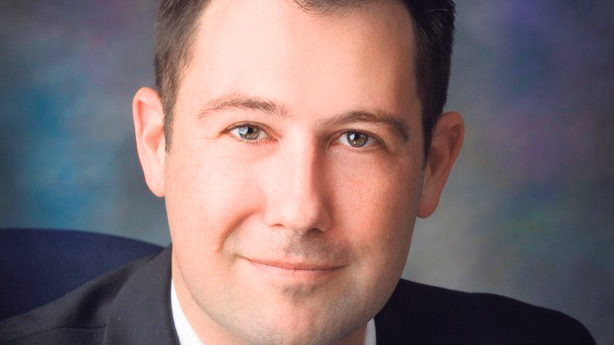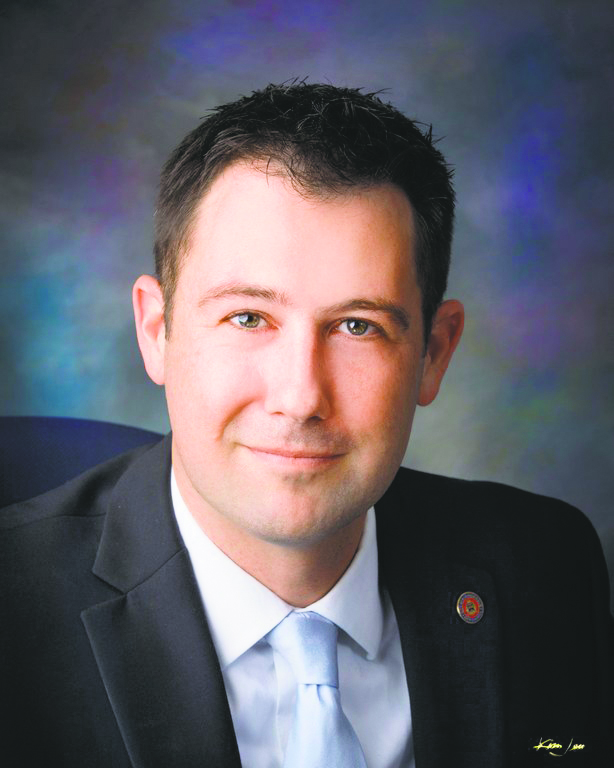Every two years, politicos across this great nation of ours wage a timeless battle in order to see who will best serve America and her interests in the US House of Representatives, the lower house of a bicameral Congress, in case you are interested in the details of governance, folks.In many ways, this year is no different than others, as folks from across the political spectrum gear up for primary races to be held in June and then a general election that happens the first Tuesday of November.But this year, there is one telling difference. The man behind the controls of the executive branch is a potential danger to democracy, to the Republic called the United States of America. During the tenure of Donald Trump, the political pendulum has swung far to the right, and citizens are rightly concerned.Trump has already taken back, though legislation and proclamation, many of the rights and much of the progress that progressive governance—and even not so progressive efforts made under the Bush administration—made possible in the past 30 years.So, onto this not so even playing field come six contenders for the District 1 House of Representatives position currently available at said US Congress.Weekly Alibi held a forum last month to preview the race. It goes without saying that it’s a lofty, highly credentialed and progressive group heading into the June 5 primary. In fact, the group of six candidates—Patrick Davis, Debra Haaland, Damian Lara, Damon Martinez, Paul Moya and Antoinette Sedillo Lopez—are a historical grouping that demonstrates our state’s excellent leadership potential.But the truth is, only one of these awesome potential citizen legislators will make the cut, ultimately facing Republican Janice Arnold-Jones—who happens to be running unopposed in the Republican primary, also Tuesday, June 5—in the general election on Tuesday, November 6, 2018.With that in mind—and consequently thinking about how a Dem win in this district is essential to moving forward from the clutches of the Big Orange One—Weekly Alibi endorses Patrick Davis—a current City Councilor with the legislative and leadership skills and experience—as the one who will certainly, and most importantly, progressively make a difference when the votes are counted on Capitol Hill.Weekly Alibi met with Candidate Davis last week to discuss his run for office. This is what the man most likely to make a difference said as we sat at the Frontier Restaurant talking about New Mexico’s future.Weekly Alibi: What’s important about Patrick Davis that would distinguish him among the other candidates for District 1?Patrick Davis: So, people are surprised to learn that the gay, former police officer who wrote the bill decriminalizing cannabis in Albuquerque started off as a Republican police officer down South, in Georgia.Where did you grow up?Outside of a little town in Georgia, Newnan. I grew up in the ’80s and ’90s in the South. It was very difficult to be gay there and then. So I moved to DC, that’s where I was a cop. My journey toward progressive politics came through those experiences.How did that cultural enlightenment lead to you wanting to be in a position to serve citizens through government?I evolved. I like to say that the way Barack Obama evolved on gay marriage is similar to the way I evolved regarding progressive governance. I got involved in criminal justice work and my views changed because of that.What can citizens expect from you as a US Representative?What folks are going to see out of me in Congress will be similar to what they’ve seen of me as an Albuquerque City Councilor. I will concentrate on things that matter. For instance?Well, it’s not just a matter of hiring new cops. I was part of that effort, but really, making sure that the cops we have reflect our community in a positive way. So passing police oversight legislation will remain of importance. Also the decriminalization of marijuana [at the national level] is becoming a priority. Here in Albuquerque, the new ordinance allows police officers work on fighting crime and promoting public safety.Public safety seems like a big issue in this election. As a Councilor, do you feel like you’ve made solid improvements in that area?People elected me to City Council to explicitly stand up to Richard Berry. They elected me because they were frustrated with City Hall, so I stood up to the mayor on everything from Bosque protection to getting rid of government waste. So in the past two or three years, I think we’ve set Albuquerque up to be successful. The issues I care about are in good hands with the new mayor, Tim Keller, that’s why I worked so hard to put Tim there. Now our city has renewable energy goals for instance, a plan that’s putting solar in Albuquerque [government] buildings, that’s really coming. We also now have a police department that doesn’t criminalize homelessness and addiction any longer. Albuquerque will succeed but I feel like citizens need someone in Washington to focus on those progressive issues at a national level.So your candidacy is a next level thing, for the city, for the state and for you, que no?If Tim Keller hadn’t been elected, I wouldn’t have run for Congress. Somebody has to stay here and look out for the things I’ve just described. Now that Tim’s there, he needs a solid partner in DC (District 1 US House mostly comprises the city of Albuquerque) to stand up to Trump and Sessions.That’s something I’ve been writing about, how substantive resistance means starting at the grassroots level, electing local and state officials with progressive agendas and then moving on to Washington with support from the lower levels. Do you think that strategy will work to bring an end to the Trump regime?Yes. People see how community governance works, how it preserves democracy. It also opens up opportunities for those who’ve worked as community organizers to step up to positions in city government. There’s a good tool there.Does New Mexico have intrinsically progressive values or will traditional conservative culture continue to flex its muscles in our state?Well, look what we’ve done in Albuquerque in the past few months. We moved an immigration-friendly resolution through [the City Council] and when it looked like it was going to pass, we had the Tea Party and [Republican House candidate] Janice Arnold-Jones protesting on Civic Plaza. KKOB [radio] did four hours of programming, call-in shows, to express their disgust. One caller said he was going to go to Tim Keller’s office and take a dump on his desk to show who really is in charge. But hate doesn’t work; the legislation passed, I stood up for the immigrant community. No craps were taken.But with all that extremist talk going, with all the hate talk, how is anything progressive going to work?It’s only when we stand up to that extremism, and have the ability to move toward a perceived center—because of the decisions citizens made about who represents them—that we can move forward, towards progressivism and away from the right. That’s the same thing we’re seeing with regards to gun violence. There was a time when practically nobody was working the other side and consequently, the NRA dominated the conversation. People, young people, finally got fed up. There are more survivors, more mothers of survivors than NRA members speaking up now. So it’s a different conversation. With regards to your question about culture: Albuquerque is embracing progressivism, that’s something the rest of the state can learn from.That doesn’t happen if you don’t register voters and elect people who truly represent the community.What key legislation do you want to work on if you get the green light from citizens?There’s a whole progressive platform of issues. And no one should be surprised if I join the progressive caucus in Congress. Things like the $15 minimum wage, universal healthcare—I’ve already committed to that. Practical things that you’d see from us first include working with existing science and tech enterprises to expand the state’s solar industry, incremental pieces that empower stake holders in the local economy, those would be priorities if I’m elected.Here in the city, we’ve stopped working on projects like how to get Walmart out of Arkansas and here to New Mexico; instead we are looking forward to investing in already existing local business. Local mom and pop shops are key to growing the economy. That’s our future.And in that future, the one number Trump can’t ignore is a Democratic majority in the house of representatives; he won’t be able to get his budget through, he will have to sit down and talk to us. If they’re out there on the right, it will be our job on the left to bring them back to center. If they’re not willing to do that, we’re not going to allow their programs to manifest. When the Democrats take back the house, there will be major changes. I want to be part of that and I’m asking the citizens of Albuquerque to send me on that mission.






